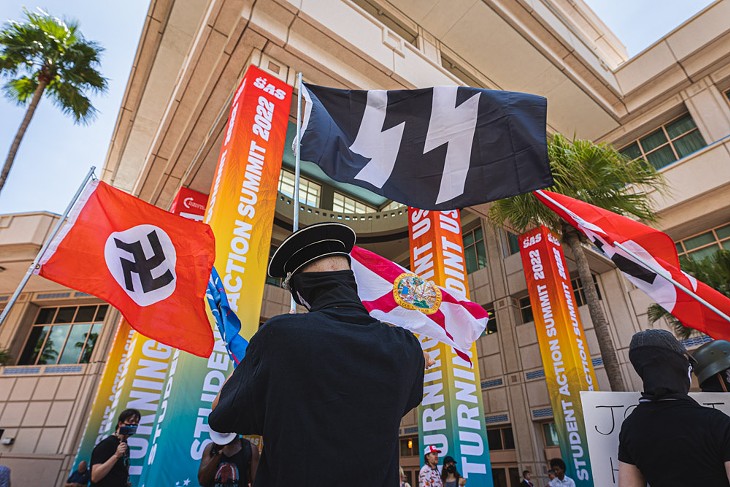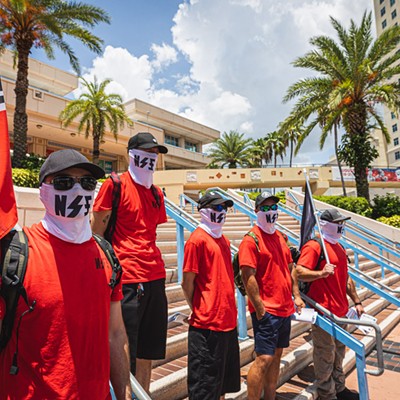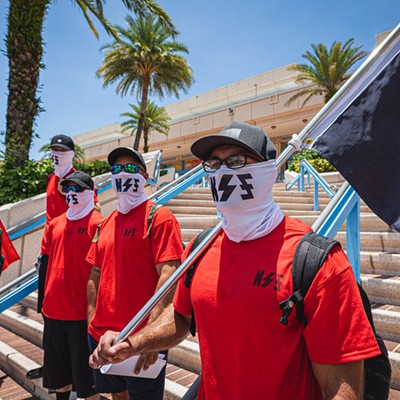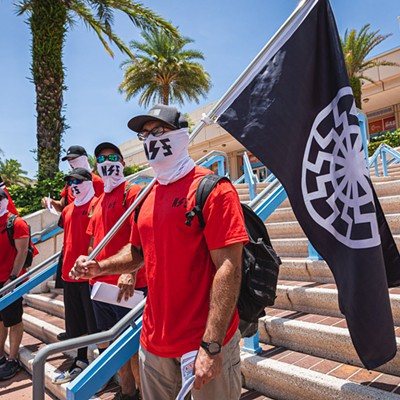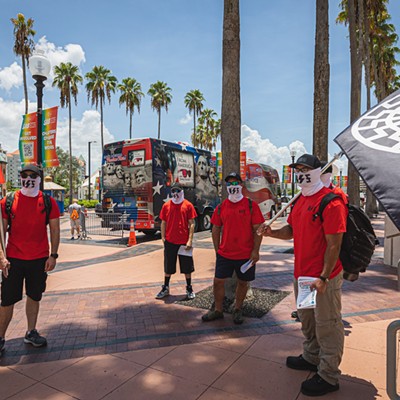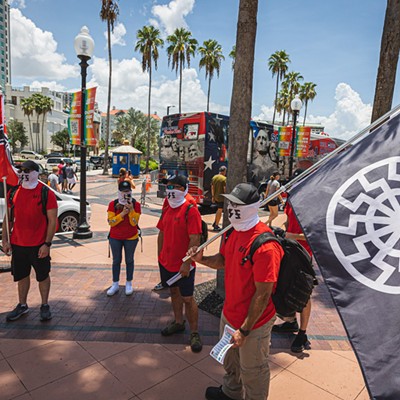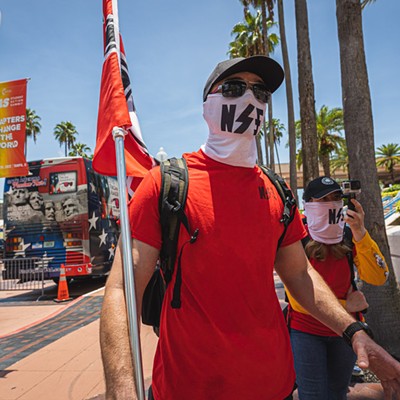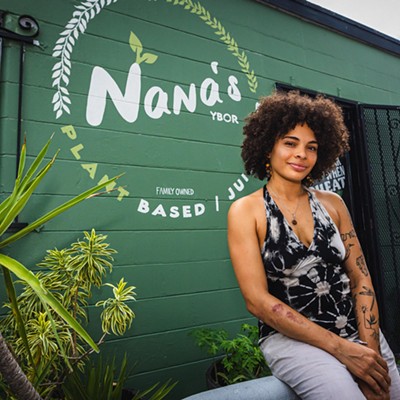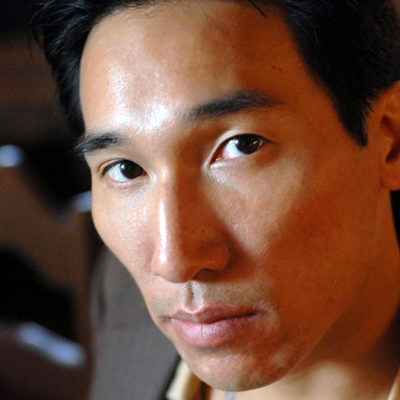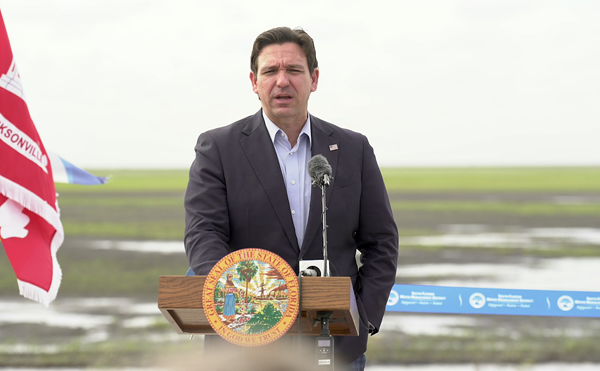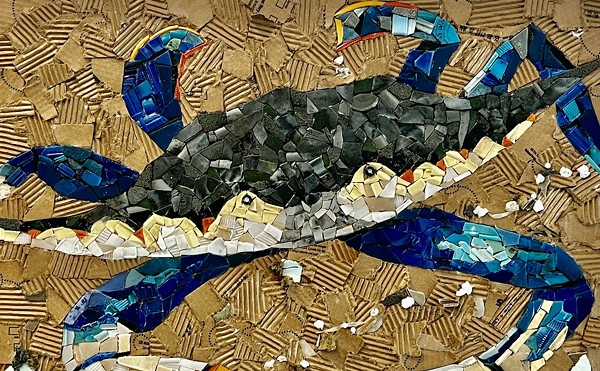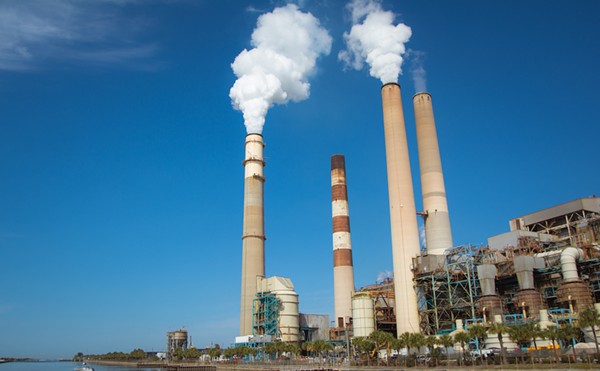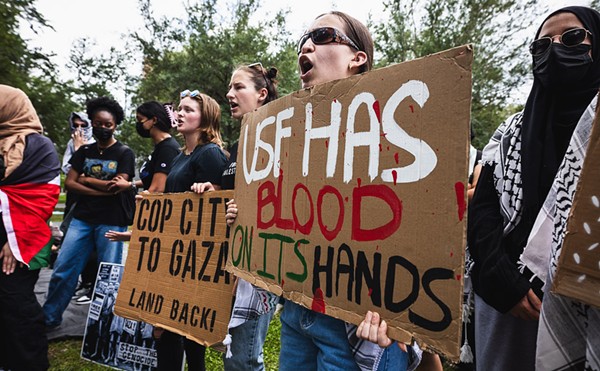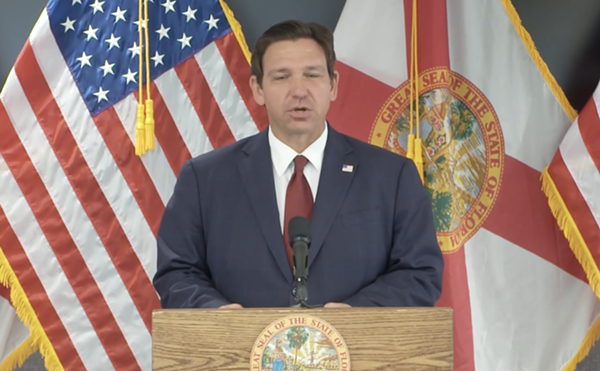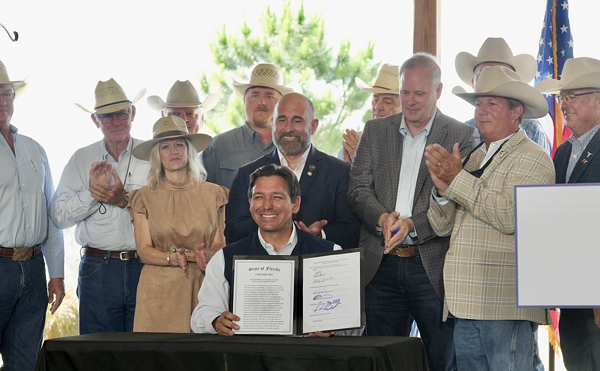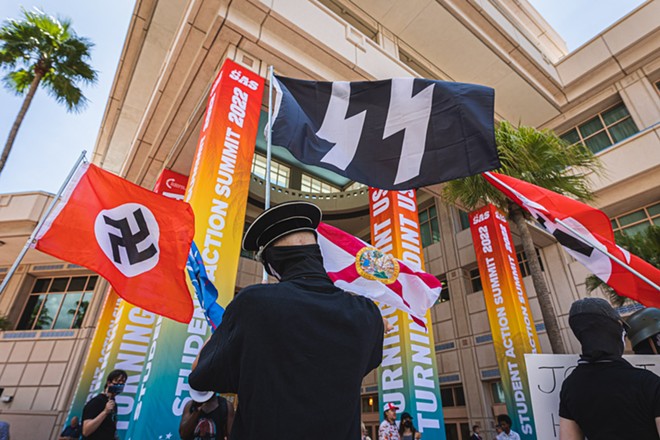
That’s exactly what Deeson says happened to his comments about antisemitism after he appeared on a recent episode of the University of South Florida’a “Advocation: Change it Up!” podcast. The longtime local journalist, who has won 12 Emmys, told Creative Loafing Tampa Bay that his comments on the show were extensively censored.
The episode was released last February as part of USF’s Activism Lab and hosted by Activism Lab director and USF College of Public Health professor Dr. Karen Liller. The lab “prepares students to be exemplary advocates and leaders in public health,” according to its podcast page.
Deeson, who is Jewish and spent over 35 years as a reporter for Tampa Bay CBS affiliate WTSP said he could hear the edits and knew his comments had been changed upon broadcast. Deeson currently hosts “Third Opinion,” a weekly radio show on Jewish affairs for the Tampa Bay Jewish Federation that used to air on WMNF Community Radio’s 88.5 FM. He says Liller invited him on to talk about the rise of antisemitism.
“I gave my true feelings on why antisemitism is on the rise and they edited it to take out and change the context of what I said,” Deeson told CL. “In my opinion, that’s because they are afraid of censorship from the DeSantis administration. The school is living in a panic because of the current environment and thinks it will cost them funds.”
In the original audio obtained by CL through a public records request, it appears that roughly 18 minutes were cut for broadcast. A portion of the audio was cut due to technical difficulties. Overall, at least 27 cuts were made to alter or delete comments. CL compared the transcripts and found almost half of the cuts, 12 in total, were made to Deeson’s comments.You cannot give an honest explanation of the rise of antisemitism without talking about political figures.
tweet this
“Editing was done only to conform to the mission of this podcast,” Liller told CL via email. “This is an educational podcast, and this episode is focused on injustices against marginalized groups. The focus of the episode is not politics, therefore references to the actions of political figures did not fit the purpose.”
Editing is also done for time, to keep the show’s episodes around 45-minutes to an hour long. But in one portion, Deeson’s comments were edited mid-sentence to create different statements.
“I think that the anti-semitism has increased in geometric proportions since Donald Trump started his birther and MAGA movement, which was totally antisemitic,” Deeson said in the original recording. “Anti-Black, anti-LGBTQ, and that’s where I think the genesis of it is, because it is pervasive.”
That became, “I think that antisemitism has increased in geometric proportions, it is pervasive.”
Liller also told CL that “while recording the podcast, the guest [Deeson] continued to reference political figures. Attempts were made to redirect the focus back to the topic of this episode.”
But Deeson told CL that Liller’s statement is “utter crap.” “I totally refute what she’s saying,” Deeson said. “She was asking for an explanation and I gave it, and it involved political figures. You cannot give an honest explanation of the rise of antisemitism without talking about political figures. And she did not try to redirect if you listened to the whole show.”
In the comparison of audio, a case could be made that Deeson has a point. In the original recording, he spoke about the neo-nazis marching in downtown Tampa last summer (which was also deleted).
“There were swastikas put over I-4 and every politician in the state, except Ron DeSantis, criticized them,” Deeson said in the original recording. “I think it started with Trump and there were politicians who were right on board with that. I point the finger of blame at all of them. They should be ashamed.”
Liller responded, “So is the problem greater now, I mean do you think it’s greater now? And I see what you're saying with your reasons. But do you think we're just seeing it more now because of social media exposure? As you said, it was always there, probably. But is there truly more or is it? Or are we just seeing it?”
Other guests on the podcast included Rev. Dr. Bernice Powell Jackson, pastor of the First United Church of Tampa, and Dr. Jacob Glickman, a clinical psychologist and counselor in Philadelphia. At one point, Liller asks Deeson and other guests to give solutions and Deeson suggests voting. Liller responded, “we voted them in, we can vote them out,” which was also deleted.
Powell Jackson told CL via email that she was aware Deeson was upset about edits to his comments but wasn’t aware her comments had been edited as well. She declined to comment further. In the original audio, she talked about the dangers of self-censorship and the recent banning of “The Bluest Eye” in Pinellas County (Toni Morrison’s award-winning book was unbanned last month).
“If we are just all silent, what is happening in Florida right now will continue to happen,” Powell Jackson said in the un-edited audio that did not make the final cut. “What is happening to Florida with the whole push to end diversity and inclusion and equality means that there's self-censorship happening because people are afraid.”
Powell Jackson’s references made to the Pinellas County School Board were cut. Edits were also made to guests’ mentions of Barack Obama, Donald Trump, DeSantis, Republicans, Democrats, Dianne Feinstein, and Louis Farrakhan. Portions of Glickman’s statements about Florida legislation banning gender-affirming care for youth were also removed.
“I think especially when younger generations are looking at, for instance, like the Florida Board of Medicine, and seeing this hatred coming from them,” Glickman said in the original recording. “I think of course younger generations are looking at that and saying OK, yes, this is the condoning of hatred.”
An edited version of Glickman’s comments appeared in the published show. Even the word “Florida,” was edited out in one part of his comments.
Glickman (who’s father is married to Liller) sent this statement to CL via email in response:
“One of the biggest challenges for activist organizations is striking a balance between speaking the truth and preserving their platform so they can continue providing information for as long as possible. I trust the Activist Lab to know that balance for itself as a program within one of Florida’s public universities. Now is the time for any person or organization to speak out against bigotry as much as they are able, in any capacity they are able.”Liller’s background is in injury prevention. Near the end of the episode, USF graduate researcher and student advisory board member Jacqueline Zalizniak talked about gun violence and the lack of research on the topic.
“With the issue of gun violence in this country, I mean we weren’t allowed to do research about it,” Zalizniak said in the original recording. “For many years we were not allowed to research anything.”
Liller responded with background information on the lack of research on gun violence, a too-common injury that definitely needs more prevention.
“Their funding has been lifted somewhat, but we are years behind where we should be in terms of that,” Liller said in the un-edited recording. “I couldn't do it, if you had any kind of reference to gun advocacy. What happened is the CDC and NIH years ago said, ‘OK, then we're not really going to fund much of anything then.’”
The entirety of that exchange was removed from the conversation as well. When CL asked Liller if there’s a university policy requiring this, she responded, “It is really the podcast parameters. I have cc’d our legal counsel to see if there is a policy statement on this for USF.”
Althea Johnson, USF’s director of media relations, responded on the matter via email, “There is no university policy. A faculty member produces the podcast and they determine the content of each episode.”
And maybe that’s the way things are at Florida’s public universities after the recent DeSantis' shakedown at New College. No policy required beyond that of fear.
All of this comes after USF President Rhea Law sided with USF police in the March arrest of five students who were protesting for diversity and inclusion on campus. Law told staff during a meeting last month that the protests made other staff fear an “active shooter,” situation was occuring. USF already fired one student, and all five face felony charges for battery on law enforcement (one student was retroactively charged this month). Last month USF blocked Tiktok and WeChat apps, citing the Florida Board of Governors emergency regulation on social media as the reason; DeSantis signed legislation banning the social network from college campuses this week.
Deeson says he believes what happened to him was USF self-censoring to avoid trouble with the DeSantis administration. In the end, Deeson says the real issue is that the edits to his comments changed the content of his meaning.
“It’s offensive as someone who does podcasts and radio shows, to change the context of the statement,” Deeson told CL. “I understand editing for time to do it sometimes, when I do interviews and when I run my podcast and radio show, but I am very careful not to change the content of what's being saved. And that said, that's what they did.”
Subscribe to Creative Loafing newsletters.
Follow us: Google News | NewsBreak | Reddit | Instagram | Facebook | Twitter

